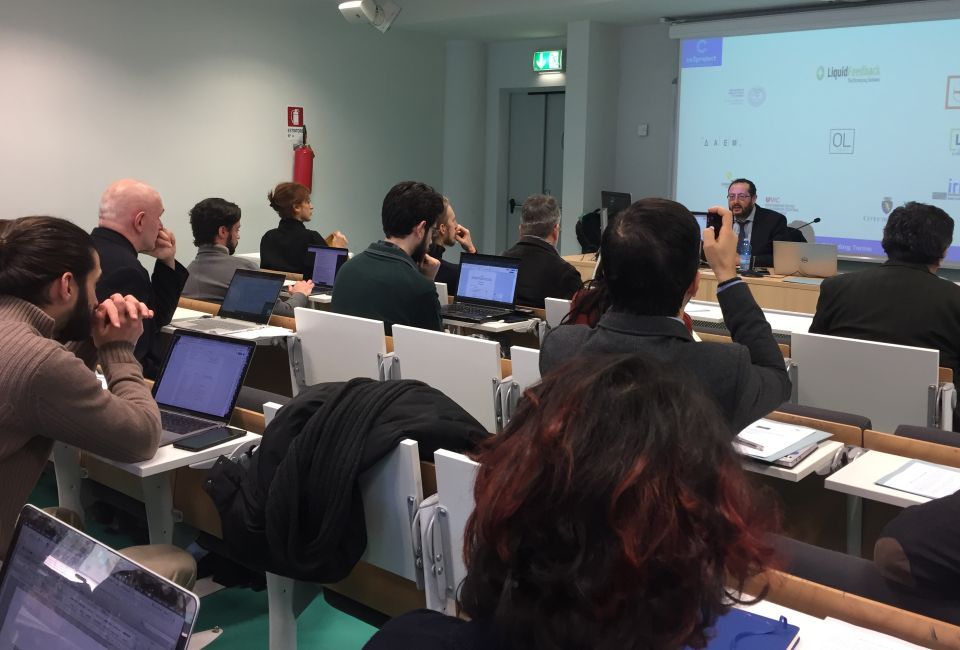
The UVic-UCC participates in the European project CO3
Researchers from the UVic-UCC are participating in a new European project that will assess the benefits and risks of disruptive technologies in the co-creation, co-production and co-ordination of public services with citizens. This is the CO3 project (Digital Disruptive Technologies to Co-create, Co-produce and Co-manage Open Public Services along with Citizens), an interdisciplinary initiative also involving scientists from the University of Turin and the ISMB research centre (Italy), the Institut de Recherche et d’Innovació Centre Pompidou in Paris (France), OpenLab in Athens (Greece) and companies including Flexiguided (Germany) and Geomotion (Spain). The project is financed by the H2020 programme - Transformative impact of disruptive technologies in public services.
The CO3 lasts for 3 years, and officially began on 1 January, but the kickoff meeting at the University of Turin, which is the coordinating centre, took place last week. Ruth S. Contreras, lead investigator of CO3 at the University, and Jordi Solé, who are both members of the data and signal processing research group (TDS) attended on behalf of the UVic-UCC. The main areas of the project were presented and discussed over two days, and the aspects that it will cover were specified.
Ruth S. Contreras is leading the CO3 communication, dissemination and exploitation workpackage. At the same time, she will be working on the design of the gamification strategies that will be implemented in the pilot phases of the project. Other members of the project's working group are Ricard Parra and Raquel Paiva Godinho.
CO3 aims to make citizens and non-profit communities join forces with the public authorities to move towards a more open democracy and a collaborative and circular economy, and to provide fresh answers to social challenges such as employment, social inclusion, education and the quality of life in Europe.
To achieve this, it will be using disruptive technologies such as virtual reality, augmented reality, geolocation of social networks and blockchains, as well as gamification strategies to encourage citizens to participate. The results of the new interaction models will be assessed based on social, cultural, economic and legal parameters.
You can follow the progress of the project on the social networks via its Twitter account @Co3Project, or with the hashtags #CO3project, #H2020 and #disruptivetechnologies.